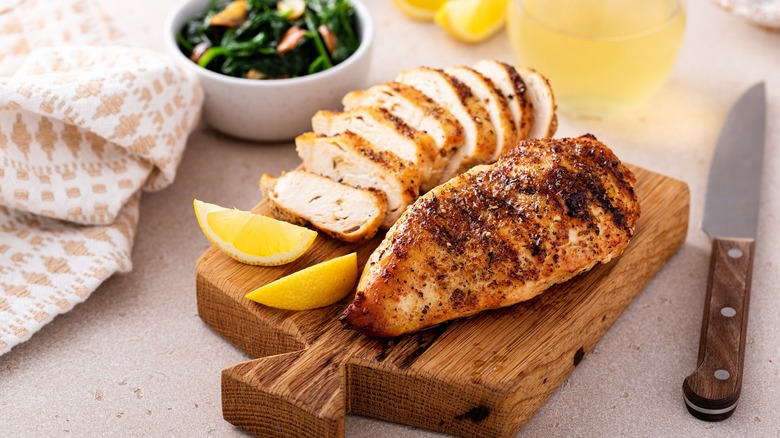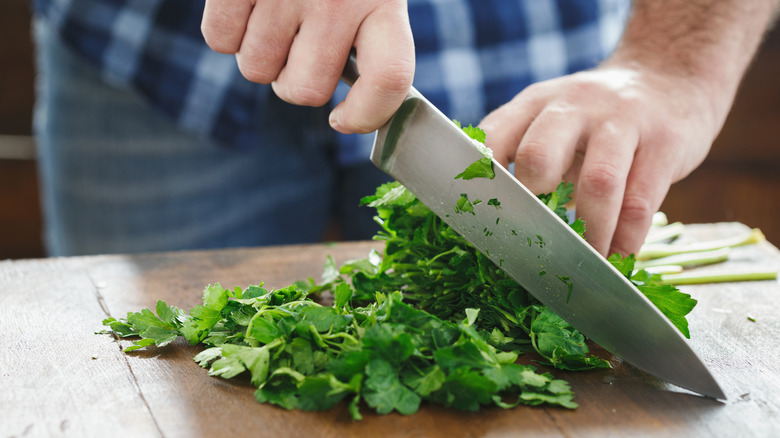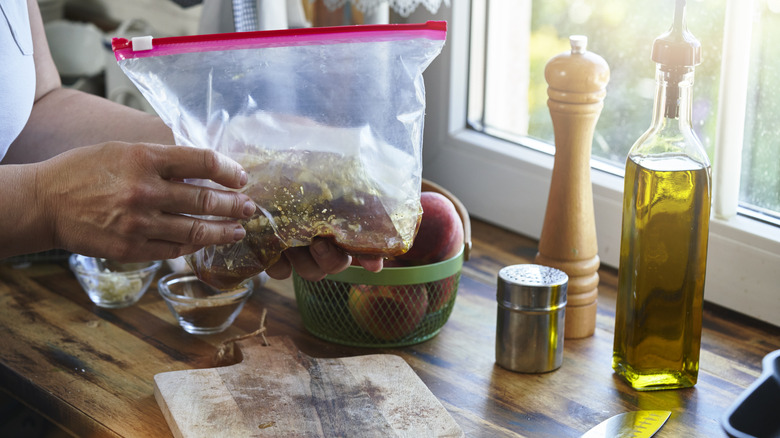The 3 Worst Mistakes You're Making With Your Marinades
Most meat and vegetables can benefit from marinade, which is ideal for amplifying flavor and creating a more toothsome texture. This type of sauce usually consists of oil, seasonings, and an acidic ingredient of your choosing, such as vinegar or citrus juice, which means just about any home chef can use them with relative ease. However, everyone makes mistakes with their marinades, and avoiding these pitfalls ensures a better outcome for your recipes.
One common error that befalls many home chefs is not leaving food in the sauce for the proper amount of time. Consider that timelines vary based on the type of meat you're marinating. Beef is a bit more rugged and hearty, so it should remain in the mixture for about 24 hours. As for something more delicate, such as shrimp and other seafood, up to one hour should suffice. As for chicken, give it about two hours to infuse the meat with maximum flavor. With vegetables, tomatoes only need 10 minutes, while peppers can remain in the marinade for a half hour or longer.
How to avoid a bland marinade
The combination of oil, acids, and seasonings in marinades work in conjunction to imbue food with maximum flavor. However, even liberally seasoned versions can end up tasting a bit bland without a few adjustments. When it comes to seasonings, consider giving spices a leg up by cooking them first. There's a good reason why acclaimed chefs like Wolfgang Puck recommend toasting spices, such as whole peppercorns and cumin. Toasting intensifies the flavor of these seasonings by allowing the internal oil inside to come to the surface.
Additions like garlic and herbs can also boost the flavor profile of your marinade. Along with dried herbs like thyme and rosemary, you can also use fresh herbs, such as basil and cilantro if you want a particularly bold flavor. To ensure garlic breaks down sufficiently and fully infuses with the food, it should be minced before being added to the sauce.
Neglecting food safety is another big mistake
Marinade mistakes can impact flavor and texture, but they can also lead to an unpleasant bout of food poisoning if you're not careful. Safe practices are key, especially when using raw meat, which requires special consideration. For instance, marinade used on raw steak or chicken shouldn't come into contact with foods that have already been cooked and are ready to eat. The better approach is to make enough sauce to use on both raw meat and prepared items to avoid spreading bacteria around.
When marinating food, be mindful of the danger zone. According to the U.S. Department of Agriculture, this refers to a temperature range that is most hospitable to bacterial growth, which is between 40 and 135 degrees Fahrenheit. Avoid this by marinating food in sealable containers or bags and placing the food in the refrigerator. Also, make sure the temperature in the refrigerator is set to 40 degrees or cooler since food could still fall victim to bacterial growth.
By avoiding common marinade mistakes, you can ensure meals are flavorful and food-safe.


